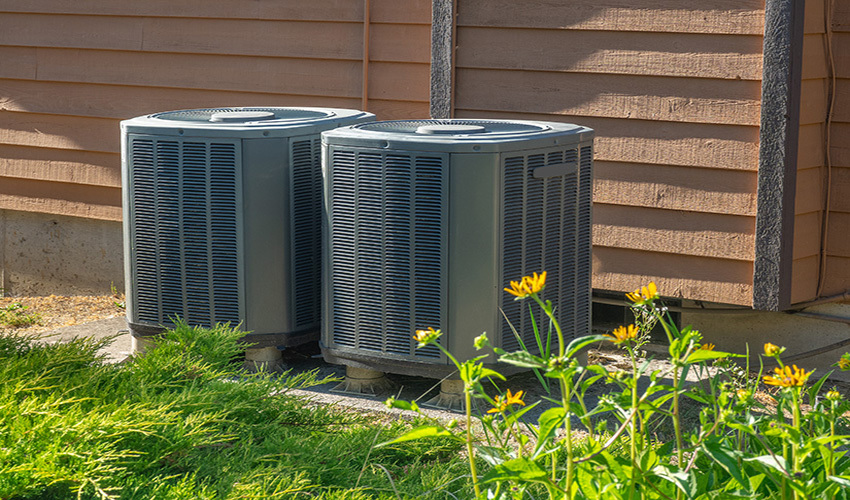Why is My Air Conditioner Leaking Water?

Do you suspect your air conditioner may be leaking water? Leaking air conditioners are common in the height of summer. Depending on the frequency and extent of the leak, it may signal a problem with the unit—and the water might even cause damage to your home.
Read on to learn more about your air conditioner is leaking water and how to fix an AC leak …
Help! My Air Conditioner Is Leaking Water
An AC leaking water isn’t always cause for alarm, as condensation may be mistaken for a leak. This is especially true for window or portable AC units. Condensation is somewhat expected, but a true leak is a cause for concern.
A window unit with a genuine leak may leave water inside the home, which may become problematic. A central air conditioner will typically leak outside the home – still a cause for concern, but it poses less of a problem to your walls or floors.
It’s important to note that a small amount of condensation underneath an outside AC unit is also normal. However, if you see a puddle when the AC unit is running and you’ve noticed it is louder than normal or you have seen an uptick in your energy costs, you may have a leak.
But why is my air conditioner leaking water?
The cause of the leak is as important as the leak’s location. Typically, water will leak if:
- The outside temperature is too cold. Running the air conditioner when it’s cold outside can cause your evaporator coils to freeze over. In general, don’t run the unit when it’s under 60°F outside.
- The drain line is blocked. Mold, dirt, algae, and rust can block the drain line and cause the AC unit to leak.
- The condensate pan is damaged. Your AC unit contains a pan to collect normal condensation. However, if there’s a crack in the pan, water will leak out of the unit.
- Refrigerant levels are low. Not having enough refrigerant can also cause the evaporator coils to freeze.
- The unit was improperly installed.
How to Fix AC Leaks
Some AC leaks may be remedied by:
- Replacing air filters.
In general, you should replace your HVAC air filters (furnace or air conditioner) every 30 to 90 days when in use. - Cleaning the drain pan.
The drain pan is located underneath the indoor air handler and evaporator coil. You can try to seal any cracks with water sealant, but it’s usually best to simply replace a faulty pan. - Unclogging your condensate drain line.
Locate the pipe that leads off your drain pan. Remove the cap and pour in about a cup of white vinegar to kill any mold or algae in the pipe. If the clog persists, use a wet-dry vacuum to suck out the blockage.
Depending on your comfort level, these tasks may be DIYs or require assistance from a reputable HVAC technician—it’s up to you. If you choose to start with a DIY fix and you see no change, it’s time to call in the professionals. An AC leaking a little water might not seem like a big deal, but it can indicate a problem that will eventually affect the performance of your unit or lead to bigger problems down the road.
Say Goodbye to AC Leaks for Good
The HVAC service professionals at your local Aire Serv® can diagnose and fix any and all air conditioner problems at your home or business, including leaks. Don’t wait. Call or request an appointment online to get started.
 Click to call
Click to call


